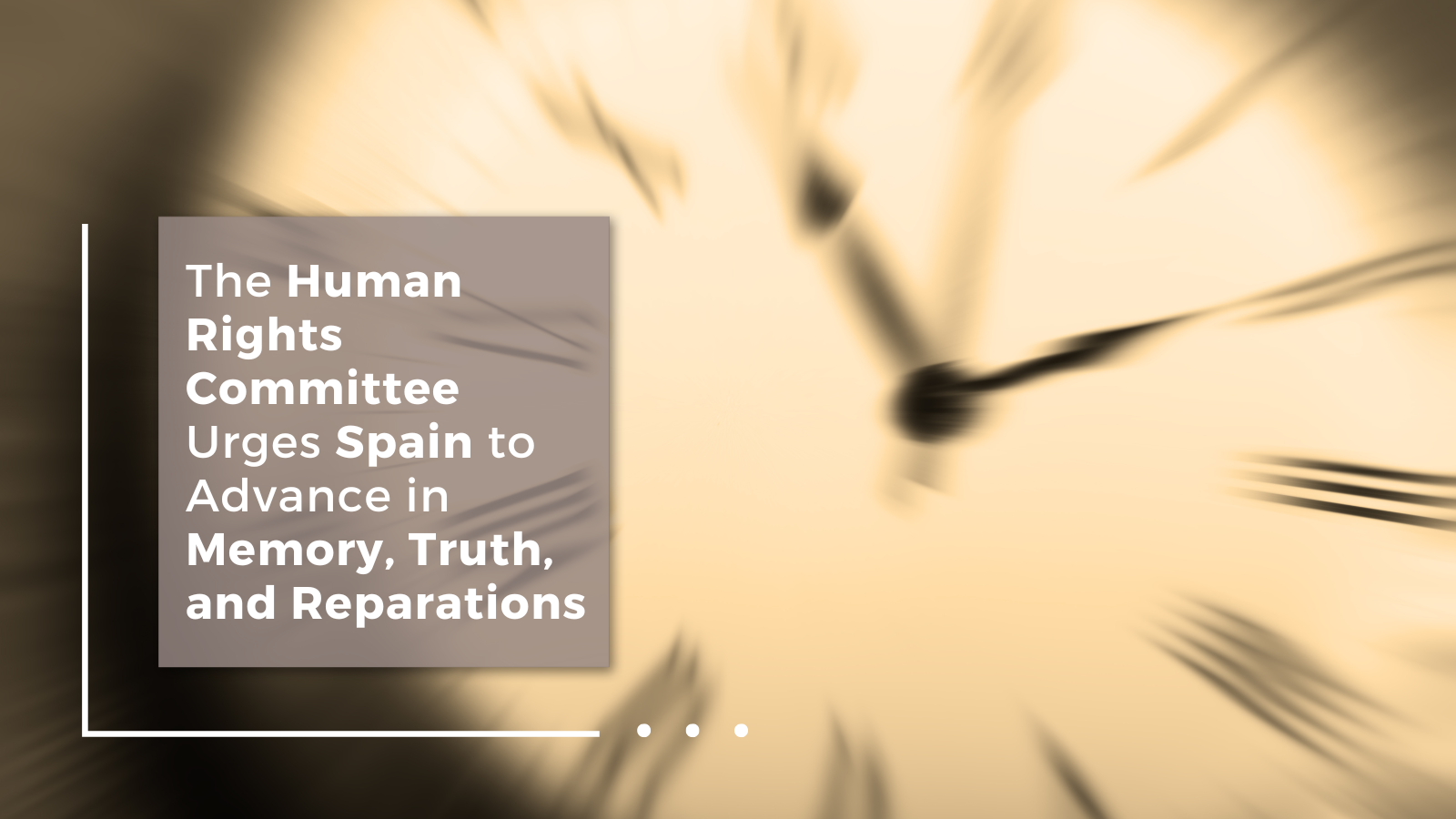
The Human Rights Committee Urges Spain to Advance in Memory, Truth, and Reparations
In July, the United Nations Human Rights Committee adopted its seventh periodic report on Spain, which provides an in-depth analysis of the country’s compliance with the International Covenant on Civil and Political Rights (ICCPR). Among the recommendations issued, a strong call stands out to intensify the fight against impunity and to guarantee truth and reparations for the serious human rights violations committed during the Civil War and the Franco dictatorship.
The Committee recognizes recent progress, such as the approval in 2022 of the Democratic Memory Law and the creation of important institutional bodies—such as the Human Rights and Democratic Memory Prosecutor’s Office and the Democratic Memory Council—which constitute significant steps toward recognizing and reparing victims.
However, the Committee expresses concern over the continued validity of the 1977 Amnesty Law, which prevents the effective prosecution of serious crimes from the past. Since 2010, ongoing criminal proceedings have not resulted in effective actions against alleged perpetrators. Furthermore, it notes that laws inherited from the dictatorship remain in force, such as Law 5/1964 on police decorations and Law 9/1968 on official secrets, which hinder access to truth and justice.
The Committee also regrets the adoption of the so-called “laws of concord” in some autonomous communities, which, by omitting violations suffered during the dictatorship, obstruct the right to truth and reparations.
The Committee values the efforts to recognize the victims of abducted girls and boys during that era, including the establishment of a national DNA bank, but denounces the slow progress in approving the law on “stolen babies” and the forced disappearance of minors.
In this context, the Committee recommends that the Spanish State:
- Eliminate the application of amnesty and statutes of limitation for serious Franco-era crimes, ensuring their effective enforcement.
- Consider repealing the 1977 Amnesty Law and the existing Franco-era laws that hinder investigation and sanctioning of human rights violations.
- Guarantee the independence and impartiality of the institutions responsible for democratic memory to ensure their work contributes to clarifying the truth and promoting reparations.
- Accelerate the approval of the bill on “stolen babies” and take measures to ensure that the national DNA bank functions effectively, facilitating the identification and reparations of victims.
These recommendations reflect international concern over the persistent impunity in cases of serious human rights violations in Spain. The Committee reaffirms that memory, truth, and justice are fundamental to consolidating a democratic state and respect for human rights.
Spain faces the challenge of continuing to advance in the recognition and reparation of victims, overcoming legal and political barriers that have so far prevented full justice.
From FIBGAR’s perspective, the Human Rights Committee’s final observations constitute an urgent and necessary call for Spain to take firm steps forward. Although important legislative advances are recognized, legal and structural barriers persist that obstruct full access to truth, justice, and reparations.
For FIBGAR, overcoming these barriers is key not only to honoring the victims of Francoism but also to strengthening the rule of law and democracy in Spain. Democratic memory must be a living instrument that promotes effective protection of human rights and prevents the repetition of violations.
Since our foundation, we have reaffirmed our commitment to defending human rights and supporting victims, backing initiatives that contribute to dismantling impunity and fostering a culture of respect and truth. We invite all institutions and social actors to join this collective effort, which is fundamental to building a fairer and more equal future.



